China's 'little emperors' of the 1980s are now the most burdened generation
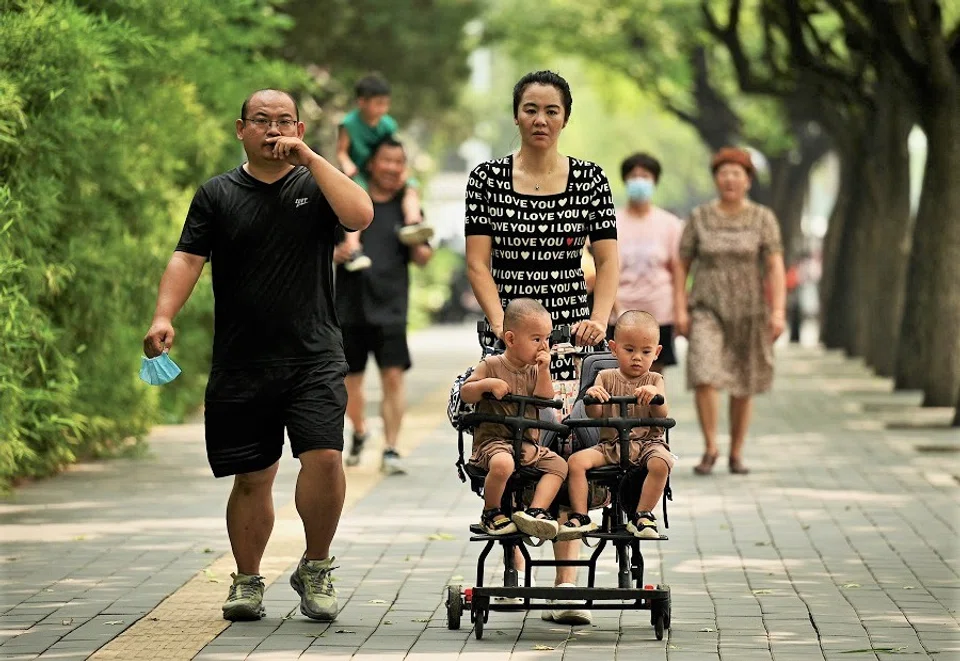
(By Caixin journalists Huang Huizhao, Chen Junke and Denise Jia)
Yin Fan is a single mum in her late 30s. When she was pregnant with her daughter, her father living in another city was diagnosed with the nervous system disorder multiple system atrophy and quickly lost the ability to walk. As the family's only child, she had to take care of her baby and her father alone.
Yin belongs to China's first generation under the old one-child policy, i.e. those born between 1976 and 1985, also known as the "sandwich generation". Now they are trapped with obligations for caring for their children and their ageing parents, putting them in a financial and emotional bind.
China has more than 170 million of such sandwich-generation families, according to Feng Xiaotian, a demographic sociology professor at Nanjing University. When they grew up in the 80s as the only child in the family, they were often called "little emperors" as they got all the attention at home. But now they have become the most burdened generation, said Professor Mu Guangzong of the Institute of Population Research at Peking University.
Money, time and energy deficits are the most common worries the sandwich generation families face. Childbirth, especially of a second child, is often the starting point of such crises.
In the past three decades as this generation grew up to have their own families, China has experienced a profound shift into an ageing society with fewer children. From 1990 to 2021, Chinese people's average life expectancy increased from 68.6 years to 78.2. The proportion of people over 65 years old more than doubled to 13.5% from 5.3%. China's birth rate dropped below 1% in 2020, and the country is expected to enter a period of negative population growth by 2025.
With parents living longer and couples having their own children at an older age, the challenges facing the sandwich-generation families affect not only their own lives but also have ramifications for the rest of society.
Expensive childcare
China implemented the one-child policy in 1980 to put a brake on population and facilitate economic growth in a planned economy that faced severe shortages of capital, natural resources and consumer goods. The authorities eased the limit in 2016 to allow each family to have two children. Last year, after a new census showed the birth rate had stalled, China raised the cap to three children.
Money, time and energy deficits are the most common worries the sandwich generation families face. Childbirth, especially of a second child, is often the starting point of such crises.
Child-rearing costs are even higher in large cities, reaching more than 1 million RMB in Shanghai and 969,000 RMB in Beijing.
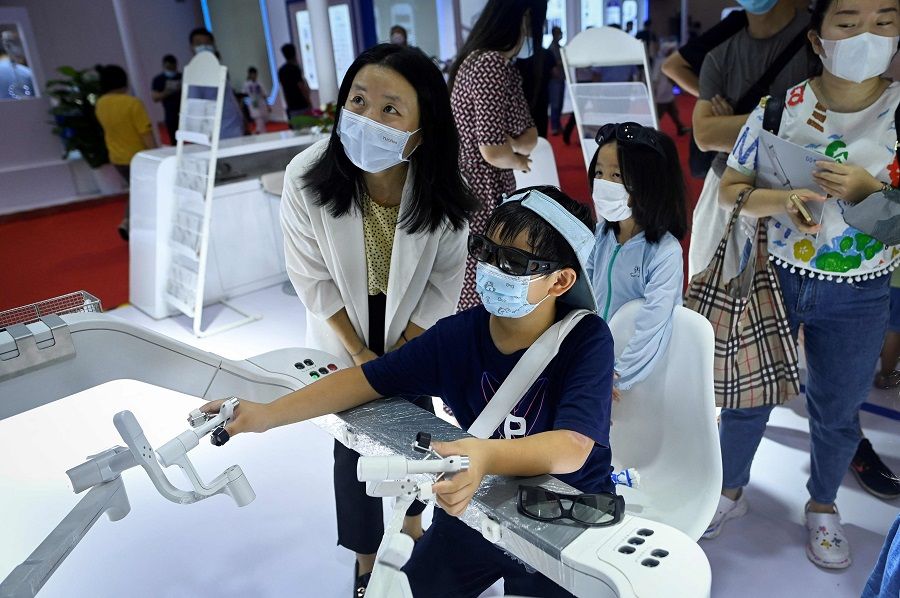
"This is the most stressful time for me," said Liu Li, a 37-year-old employee of a state-owned enterprise. With his wife working at a bank, they take home 20,000-30,000 RMB (US$2,900-$4,300) each month, a decent middle-class income in a small town. But since the birth of their second child, they live from paycheck to paycheck.
In today's China, more and more families with stable jobs and reasonable savings are trapped in financial problems, time crunches or health difficulties due to the burden of raising children, said Zang Qisheng, a professor at Soochow University.
The average cost of rearing a child until the age of 18 was 485,000 RMB in China in 2019, which was 6.9 times China's per capita GDP, much higher than in many developed countries including the US, France, Germany and Japan, according to a report by YuWa Population Research Institute. The think tank was established by a group of demographers and economists, including Liang Jianzhang, an economics professor at Peking University.
According to the 2019 China General Social Survey, 27% of urban families in China include people ages 60 or older and children of 14 or younger, meaning that one in four families face this double pressure.
Child-rearing costs are even higher in large cities, reaching more than 1 million RMB in Shanghai and 969,000 RMB in Beijing.
The pressure of raising children is mainly an economic matter, while caring for the elderly is more of a time and energy issue, said Wang Guangzhou, a researcher at the Institute of Population and Labor Economics at the Chinese Academy of Social Sciences. In the next decade, as the parents of the first generation of single-child families enter their 70s and 80s, the elder-care pressure will grow more prominent, he said.
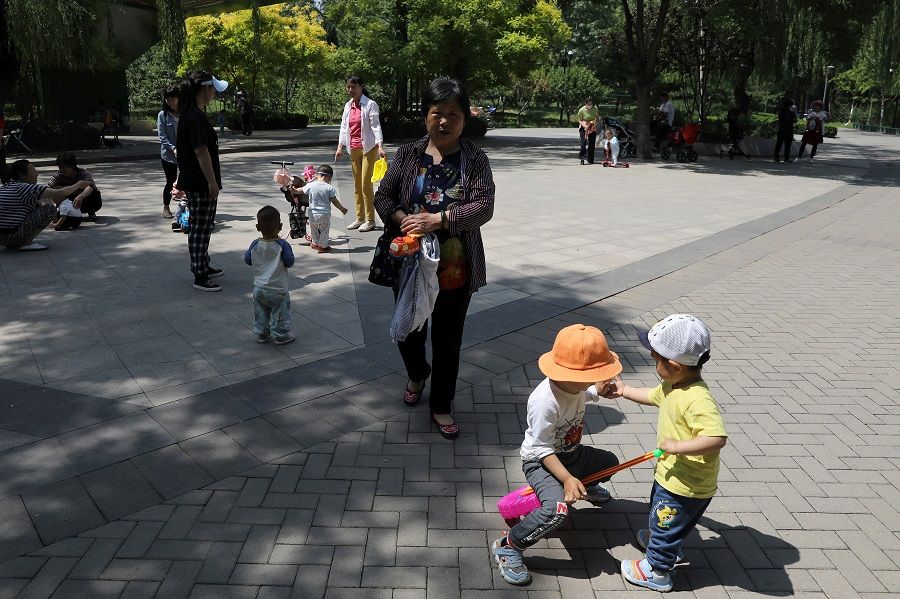
With the trend of late marriage and late childbearing, the double pressure of caring for the elderly while raising young children is more likely to come at the same time. According to the 2019 China General Social Survey, 27% of urban families in China include people ages 60 or older and children of 14 or younger, meaning that one in four families face this double pressure.
Children first
Facing the dilemma of caring for young children and elderly parents, how will the sandwich generation allocate the family's money, time and human resources?
"Children first" was the conclusion in a study based on telephone survey of 2,439 urban families in the provinces of Guangdong, Jiangsu and Shaanxi by Sun Yat-sen University and Guangzhou University.
The sandwich generation usually shows a strong sense of responsibility and urgency for children, said Zhong Xiaohui, a professor at Sun Yat-sen University. However, in terms of elder care, most families lack clear planning and often have to response on the fly when a parent falls seriously ill. There is a sharp contrast between their rich knowledge of childhood development and their relatively ignorance of the elderly, the survey found.
Children become the center of families, and parenting styles tend to be intensive or even excessive, said Yang Juhua, a professor of ethnology and sociology at Minzu University of China. As family resources are limited, it is often the elderly who make concessions, Yang said.
As China encourages people to have more children to counter the slowest birth rate since the 1950s, this childcare model of relying on grandparents may no longer work.
Not only parents but also grandparents often actively shift resources to the children. To cope with the high costs of childcare, the sandwich generation normally needs help from their parents.
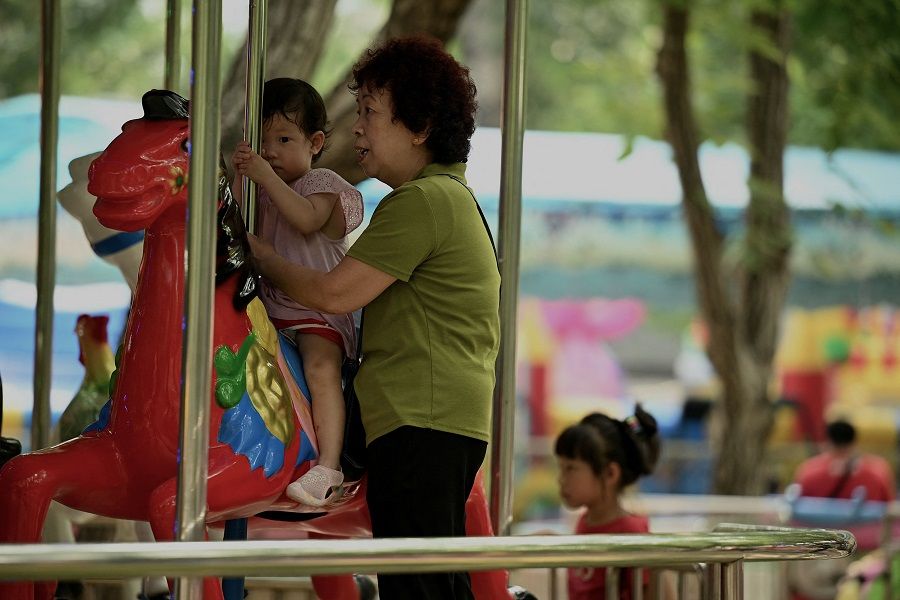
Yang Mo, 61, came to Beijing from her hometown in Anhui province after retirement to help her daughter to take care of her newborn. She spends 12 hours a day from 7 am to 7 pm feeding, bathing and playing with the baby as well as cooking and cleaning before handing the child off to her daughter after work, Yang told Caixin.
"I dare not get sick," she said. "Who would take care of the baby?"
There were about 42 million infants under the age of three in China in 2021, and the nursery enrolment rate was only about 5.5%, according to the National Health Commission. The big gap means most families with infants have to rely on grandparents for childcare.
Childcare costs account for nearly 50% of the average Chinese family's income, and 80% of children under the age of three are cared for by grandparents, said Yang Wenzhuang, director of the commission's Department of Population Surveillance and Family Development.
As China encourages people to have more children to counter the slowest birth rate since the 1950s, this childcare model of relying on grandparents may no longer work. Several studies have found that grandparents are less involved in the care of their second grandchild than the first.
More and more elderly people have their own plans for retirement and are not willing to devote themselves to caring for grandchildren, said Yang at Minzu University of China. Even if they want to, ageing makes them unable to, the professor said.

Without grandparents' help, the burden on the sandwich generation increases, which in turn makes them unwilling to have more children. In a 2016 survey, 60.7% of mothers who already had one child said they didn't plan to have a second one because of a lack of childcare.
Can a single child afford the costs of caring for two elderly parents?
From caregivers to care receivers
The more serious challenge is what happens when grandparents are not only unable to help but transition from caregivers to needing care. For the sandwich generation, the worst scenario is that their parents suddenly become severely ill or disabled, physically or mentally.
"It's not only expensive, but also very stressful on your mind," said Wang at the Chinese Academy of Social Sciences. "It's not like raising a child, with hope growing every day. Once an elderly person can't take care of oneself in daily life, the hope is fading every day."
According to an estimate by the World Bank, China is expected to have 93 million people over the age of 75 by 2030, accounting for 6.6% of the population. By then, there will be more than 77 million disabled elderly in China, who will experience 7.44 years of disability on average, estimated Zheng Xiaoying, director of the Institute of Population Studies at Peking University.
Empty nesters
Can a single child afford the costs of caring for two elderly parents?
According to the 2020 census, 70% of the urban elderly population's income is from pensions and 17.3% from family support. Parents of the first generation of one-child families living in cities thus generally come close to supporting themselves financially, and their children's burden is not obvious, said Wu Haixia, a researcher at the Institute of Population Studies of the Chinese Academy of Social Sciences.
But elderly people living in rural areas are not so lucky. In 2019, the annual pension and other income of the rural elderly was about 3,500 RMB. Most rural elderly people have to rely on family support and continuing to work to get by. With the reduction of family size, the proportion of family support the elderly can rely on has been decreasing, said Nie Riming, a researcher at think tank Shanghai Institute of Finance and Law.
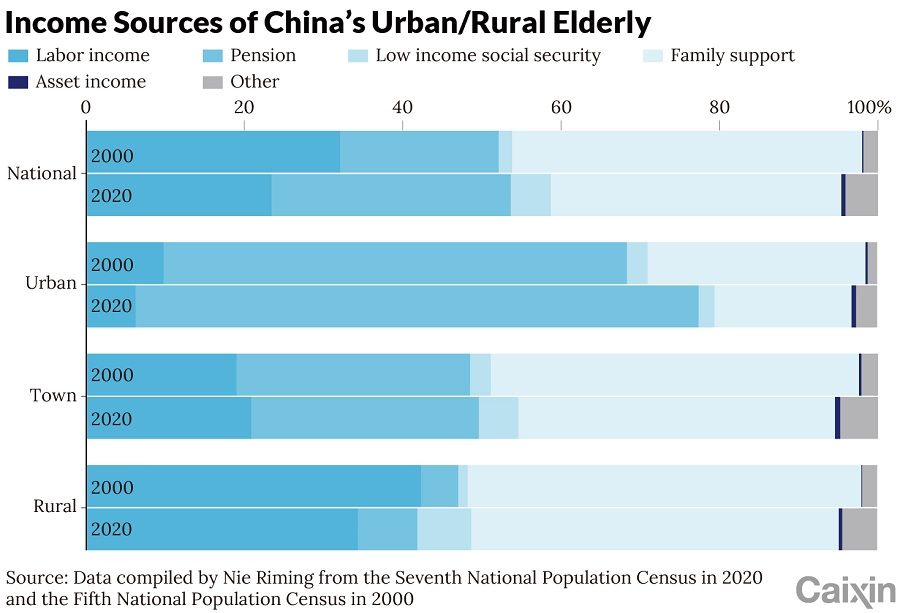
All the data show that the rural regions are the "disaster areas" in China's ageing population challenge. Nearly half the nation's over-65 population live in rural areas, according to the latest census.
The trickier question is who will take care of the rural elderly.
A 2014 survey by researchers at Renmin University of China found that nearly half of rural elderly were empty nesters, and 12.54% of them needed various degrees of care.
The main reason for the high proportion of empty nesters in rural areas is that a large number of young and middle-aged people leave their hometowns to work in cities.
If a married couple's parents live in two different cities, that makes it even harder to care for all four parents at the same time. - Nie Riming, Shanghai Institute of Finance and Law
When these elderly living alone become seriously ill, half of them do not seek medical treatment because of mobility problems, being unaccompanied or living too far from hospitals - in addition to financial reasons - according to a survey by Wu at the Chinese Academy of Social Sciences.
The problem for empty nesters in cities is not much less. According to Feng Xiaotian at Nanjing University, the proportion of empty nesters among the parents of the first-generation of only children in cities was about 60%, based on a 2015 national survey of 12 cities and a 2016 survey of five towns in Hubei province, if a married couple's parents live in two different cities, that makes it even harder to care for all four parents at the same time, said Nie at Shanghai Institute of Finance and Law. Such cases are particularly common in megacities such as Beijing and Shanghai, where high housing cost is the first problem when children want to bring their parents to live with them, Nie said.
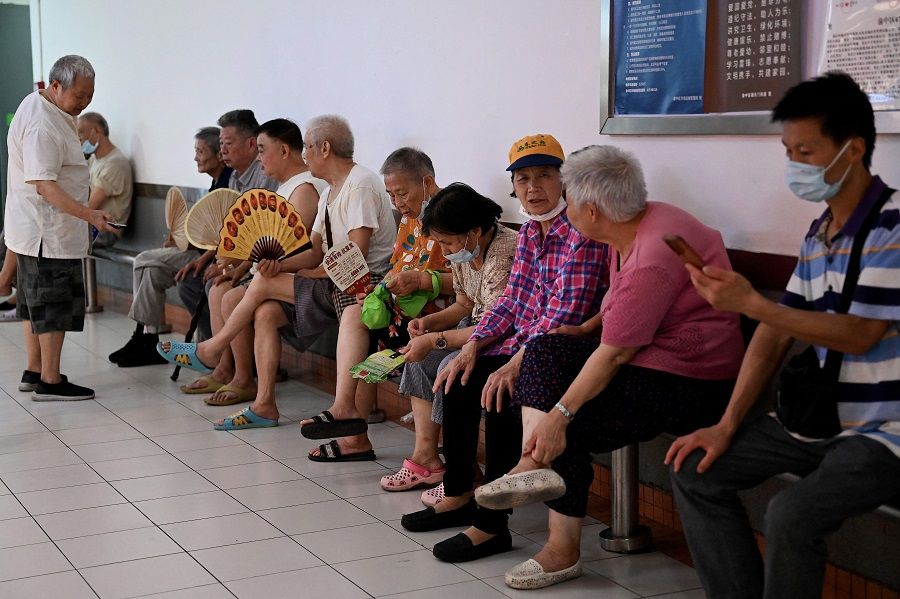
Even for those who are able to live with their elderly parents, inadequate care is a common problem. The primary caregivers for 60% of the disabled elderly in urban areas in China are their children, but more than half of them receive care for less than 36 hours a week, according to a 2019 survey by Li Yunhua and Liu Yanan at Wuhan University's School of Politics and Public Administration.
Meanwhile, it is difficult for families to find affordable professional care for disabled elderly, Zhong at Sun Yat-sen University and Peng Minggang at Guangzhou University said in a report. China provides few public elderly care services for the average family and few supporting measures such as subsidies and tax rebates to help families purchase market-oriented care services, they said.
"Honestly speaking, it is almost a problem without a solution for the generation of only children to care for their elderly parents," a sociology scholar told Caixin. "This is the sorrow of our generation, and our parents."
By the time their parents are in their 80s and 90s, the sandwich generation will be in their 50s and 60s. "When they bury their parents, who can they rely on?" - Jin Jun, sociology professor at Tsinghua University
Turning old themselves
As the public discussion focuses on child and elder care, the needs and risks of those in the sandwich generation themselves are often overlooked.
To care for their parents, many people have to quit their jobs or choose a lower-paying job with a more flexible schedule. As a result, they suffer a sharp drop in income and the loneliness of social disconnection, Huang Chenxi, deputy dean of the School of Social Development of East China Normal University, found in interviews with caregivers for disabled and mentally ill elders in Shanghai.
Elder care reduces rural women's access to non-farm jobs by 13.5%, a negative effect that will continue to expand as the intensity of elder care increases, Fan Hongli and Xin Baoying at Shandong University of Finance and Economics found in a study.
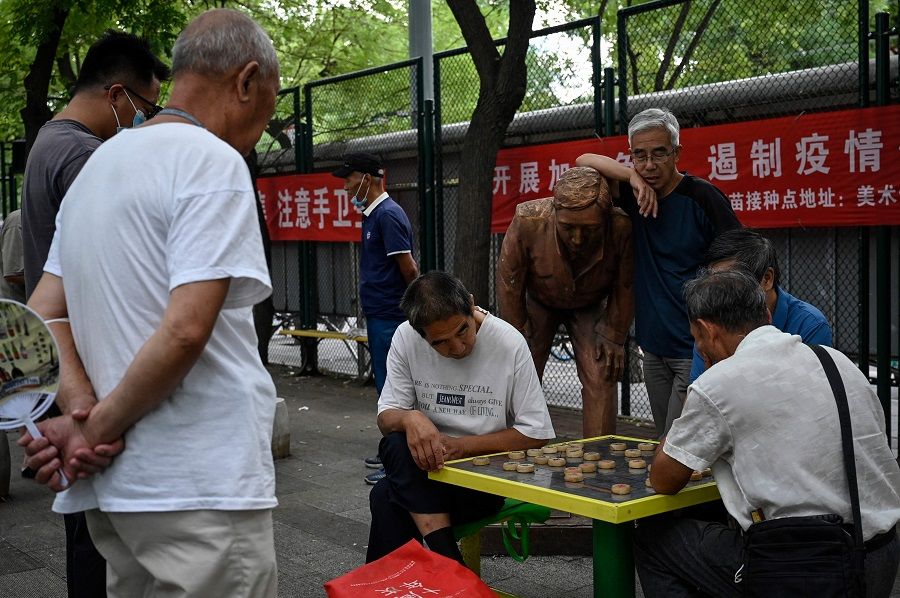
By the time their parents are in their 80s and 90s, the sandwich generation will be in their 50s and 60s. "When they bury their parents, who can they rely on?" asked Jin Jun, a sociology professor at Tsinghua University.
In 2020, China's social insurance fund, which includes the basic state pension funds run by provincial-level governments, reported the first annual deficit on record. The deficit is expected to grow to 11.28 trillion RMB by 2050, when the peak of the retirement of the sandwich generation hits.
Scholars have long suggested measures by the government to ease the burden on the sandwich generation.
Ma Chunhua, a professor at the Institute of Sociology of the Chinese Academy of Social Sciences, called for the government to play a more active role in providing childcare. "Children should be taken care of jointly by the whole society so they can grow up to take care of the whole society in the future, so as to maintain the overall operation of the economy and the continuity of the social security system," she said at a forum on the ageing society.
Supportive policies can't be achieved overnight, said Chen Jia, a professor at the School of Sociology of Shanghai University. For example, it took decades for Japanese families to accept a long-term care insurance system and fully reap the benefits of the system, Chen said.
(At the request of the interviewees, the names of Yin Fan and Yang Mo are aliases.)
This article was first published by Caixin Global as "Cover Story: The Double Squeeze on China's 'Sandwich Generation'". Caixin Global is one of the most respected sources for macroeconomic, financial and business news and information about China.
Related: China wants to reverse its high abortion rate with pro-birth policies, and young women are not happy | Why extended maternity leave will not encourage childbirth in China | Is China facing a demographic crisis? | Chinese netizens lament barbarity of one-child policy era | Why Chinese women are unwilling to give birth | Can China reverse its population decline? | China's demographic crisis: The farmers should have a say
